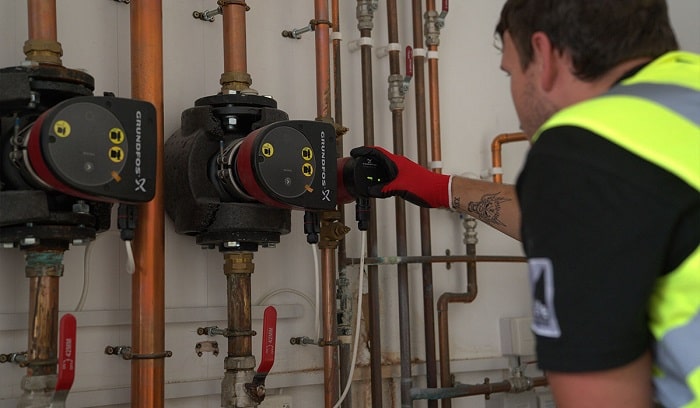.jpg)
It is common to observe that energy bills vary from month to month. It is essential to understand energy consumption as bill prices continue to rise. It also helps to know how you can reduce your carbon footprint and save money.
Gas and electricity are used for various purposes, such as cooking, heating, and operating gas and electrical appliances. Overall usage is affected by multiple factors, such as lifestyle, the number of family members, the size of your home, and the efficiency of your appliances. If appliances are not maintained regularly, their efficiency is affected, leading to higher energy costs. Knowing these things helps occupants use them effectively to avoid unnecessary bills.
Energy consumption is the amount of energy a household uses to operate gas or electric appliances. As both are important in their own way, electricity is required for lighting, while gas is used for cooking and heating systems.
Both have different purposes. Electricity powers appliances like washing machines, irons, and other basic electronics, while gas powers stoves, heaters, and boilers. Both of these are important as they have a great impact on our daily lives. They are measured differently. For electricity, kilowatt-hours (kWh) are used, while cubic meters or therms are used for gas measurement. Nowadays, smart meters are installed that monitor the daily consumption and provide real-time data. It helps homeowners identify their consumption so they can save accordingly. Traditional energy meters are still in use, but do not allow real-time monitoring, which is a disadvantage. The first step in managing consumption is understanding how energy is used and how it's measured.

Electricity is an essential part of every household, as it powers many daily appliances. Typically, an average household utilizes 3000-4500 kWh of electricity per year. The range may vary depending on the number of occupants and their lifestyle. The size of the house also matters. A general breakdown of electricity usage is as follows:
Certain factors affect electricity consumption, such as the appliance's efficiency rating, age, and daily usage.
Typically, a household uses 12,000 to 18,000 kWh of gas annually, but certain factors affect usage. The breakdown is given as follows:
Multiple factors affect energy use, and they may vary from one home to another. Household usage is not the same, as different factors affect gas and electricity consumption. Some important ones are given below:
The first step is to understand energy use in an average household so it can be managed accordingly. Usage depends on various factors, including the number of occupants, usage habits, appliance efficiency, and season. Homeowners can take multiple steps to reduce energy consumption, such as installing smart meters to monitor consumption and adjust accordingly.
There are other measures that also help reduce energy bills significantly, including improving insulation, changing usage habits, and upgrading appliances to increase efficiency. It also protects the environment and decreases the carbon footprint.
Track energy usage and make thoughtful choices to reduce energy bills and create a comfortable home environment.
It depends upon the country, size of the home, and usage habits. It is observed that the average expenditure of electricity is $100 - $150 per month, while the efficiency of appliances and monitoring the usage can help to reduce it.
It generally ranges from 12,000 to 18,000 kWh annually. The amount can increase during winter as usage increases.
Heating and cooling systems consume most of the electricity. Other than that, washing machines, water heaters, and refrigerators also consume a significant chunk. Other devices, such as televisions, that remain on standby for long periods, can affect consumption.
Yes. They provide real-time usage data, which helps alter habits and reduce usage.
Yes. Proper insulation can reduce gas usage by 10-30%. It also depends on the weather and energy efficiency.
Of course. LED bulbs do help to save electricity usage. They take 80% less electricity than regular bulbs and also last longer.
In winter, gas usage is higher as heating and boilers run on gas, while in summer, electricity usage increases for cooling systems. Thus, seasons do affect energy consumption.
Fill the required information to order a gas safety certificate instantly.
Are you curious about your Gas Safety Certificate? With these simple steps, learn how to check its status and ensure your peace of mind.
Find out why your boiler is vibrating loudly. Explore causes, troubleshooting tips, and the importance of prompt repairs for a quiet and efficient heating system at home.
Gas engineers perform a gas safety check to ensure your gas appliances are safe. Read to learn what more you can expect from the gas safety check.
Learn about the importance of gas safety certificates for landlords and the legal consequences of not having a valid certificate.
Know your tenant rights: How long can a UK landlord leave you without hot water? Stay informed, assert your rights.
Every landlord in the UK is legally bound to follow gas safety regulations as per the Gas Safety (Installations and Use) Regulations 1998.
Fill out the following enquiry form and we will contact you as soon as possible.